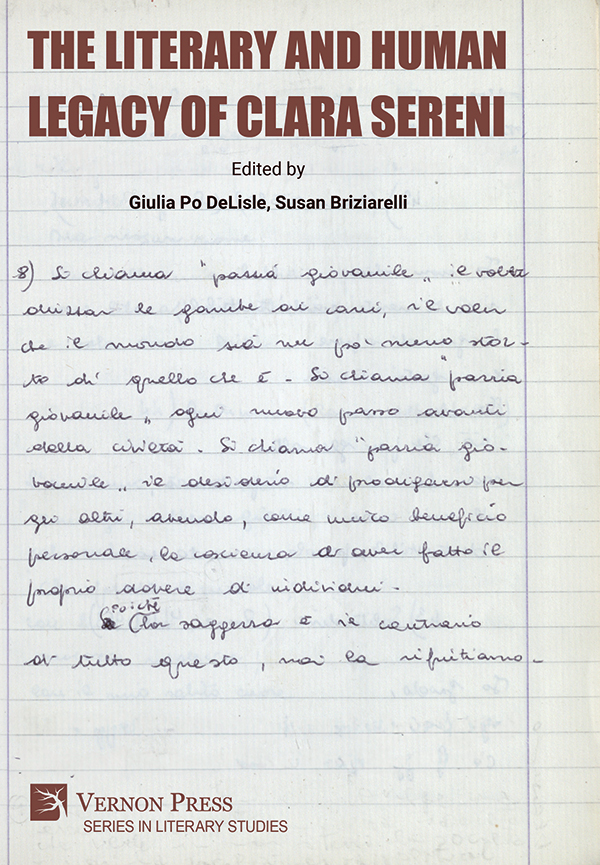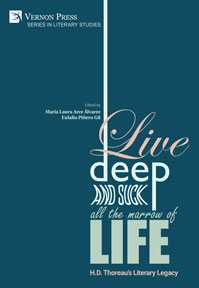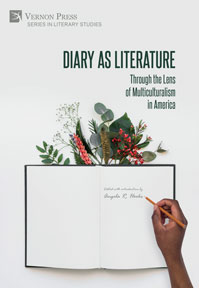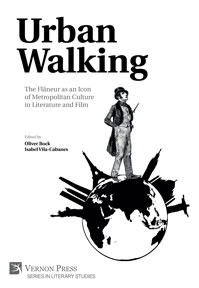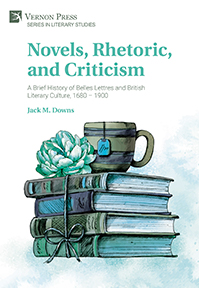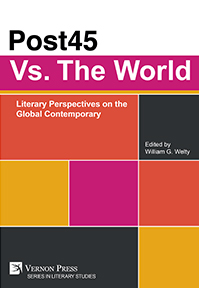The Literary and Human Legacy of Clara Sereni
Giulia Po DeLisle, Susan Briziarelli (Eds.)
by Susan Briziarelli (Adelphi University), Mirna Cicioni (Monash University, Melbourne), Giovanna Miceli Jeffries (University of Wisconsin, Madison), Simonetta Milli Konewko (University of Wisconsin, Milwaukee), Scott Lerner (Franklin and Marshall College), Margherita Losacco (University of Padua, Italy), Nicole Paronzini , Giulia Po DeLisle (University of Massachusetts, Lowell), Puma Valentina Scricciolo (University of Perugia, Italy)
Purchase this book
(click here to change currency)
This extraordinary collection dedicated to internationally famed Clara Sereni promises to become the essential reference for understanding the rich breadth of this author’s creative works in Italian literature, society, and politics, as well as how they speak to issues of strong concern today. While drawing out the varied aspects of her legacy, the spectrum of readings by acclaimed experts includes personal essays, English translations of short stories, and acute studies on such formative elements in Sereni’s arts of writing and daily life as Jewish identity, mothering children with disabilities, music, generational foodways, memory, and ecology, which are examined in their microspatial and global dimensions. This singular volume will surely engage general readers and scholars interested in literature, gender studies, disability studies, anti-Fascism, social justice, and Jewish studies.
Robin Pickering-Iazzi
Professor Emerita of Italian and Comparative Literature
Department of Global Studies
University of Wisconsin, Milwaukee
This is a welcome and important contribution to the wide-ranging work of writer, intellectual and activist Clara Sereni. The multifaceted volume is an invaluable addition to the growing scholarship on Sereni and highlights the impact her work has had on global feminisms and practices.
Eugenia Paulicelli
Professor of Italian Studies
Queens College and The Graduate Center
The City University of New York
Clara Sereni lived an extraordinary life in extraordinary times. Born in Rome in 1946, she grew up in a prominent family of Jewish intellectuals whose influential role in Italian politics and in the anti-fascist resistance could not but inform Sereni’s own future social and political engagement. Coming of age during the turbulent Sixties, Sereni embraced the struggle for women’s rights, social justice, and political reform, championing Eduardo Galeano’s notion that utopia always stands at the horizon, and one must keep walking to reach it.
Activist, journalist, writer, translator, but also musician, disability rights champion, home-maker, and wife; her multiple and often conflicting roles emerge in a rich and multifaceted writing, increasingly balanced between the public and the private, history with a capital “H”, and personal memoir.
Her first major success, ‘Casalinghitudine (Keeping House)’, explores the juncture of the public and the personal as important historical moments merge with her workaday memories of cooking. Her remarkable historical novel ‘Il Gioco dei Regni (The Game of Kingdoms)’ traces her family history from the early 20th century through the post-war period, chronicling their personal lives and their involvement in Italian politics and Jewish intellectual life. Subsequent works such as ‘Taccuino di un’ultimista’ (‘Notebook of a Meek Woman’) and ‘Passami il sale’ (‘Pass me the Salt’) tackle the difficulties of negotiating life as a political figure, wife, and mother of a disabled son. In works such as ‘Eppure’ (‘And Yet’), ‘Le Merendanze’ (‘Afternoon Snacks’) and ‘Una storia chiusa’ (‘A Closed Story’), as well as ‘Il lupo mercante’ (‘The Mongering Wolf’) and ‘Via Ripetta 155’ (‘155 Ripetta Street’), she again intertwines private experiences and public circumstances, raising questions related to gender, class, disability, the elderly, and sustainability.
This is the first volume that brings together the critical aspects of Clara Sereni’s work, providing a comprehensive view of the writer, the intellectual, the politician, and the woman.
As we reflect on the 20th century, Sereni’s long-spanning writing career stands as an important document of its struggles, its conflicts, and, like Sereni herself, its enduring idealism.
Acknowledgments
Introduction
Giulia Po DeLisle
University of Massachusetts Lowell
Susan Briziarelli
Adelphi University
Part 1. Legacies
Chapter 1 “For Clara” by Chiara Ingrao
Translated by Fabiana Viglione
University of Massachusetts Lowell
Chapter 2 Clara Sereni Author “On the Threshold,” Between a Memory of the Future, Autobiography, and the Search for a Collectivity
Puma Valentina Scricciolo
University of Perugia
Chapter 3 Interview with Ginetto Campanini
Giulia Po DeLisle
University of Massachusetts Lowell
Part 2. Essays
Chapter 4 Cuore e ragione, Heart and Reason: The Political and Ethical Poetics of Clara Sereni’s Literary Engagement
Giovanna Miceli Jeffries
University of Wisconsin
Chapter 5 Musical and Literary Interactions in Clara Sereni’s Life and Writing
Giulia Po DeLisle
University of Massachusetts Lowell
Chapter 6 Playing the Realms: Clara Sereni’s Jewish Family Saga of the Twentieth Century
L. Scott Lerner
Franklin and Marshall College
Chapter 7 The Earliest Reception of Il Gioco Dei Regni in Clara Sereni’s Correspondence: Silvia Vegetti Finzi, Cesare Segre, and Bruno Visentini as Readers and Critics
Margherita Losacco
University of Padua
Chapter 8 Casalinghitudine and the Revival of Women’s Venues
Simonetta Milli Konewko
University of Wisconsin
Chapter 9 Clara Sereni and Susanna Tamaro in the Kitchen and the Production of Food: A Woman’s Role Between Tradition and Emancipation
Nicole Paronzini
Independent scholar
Chapter 10 Final Chapters: Self, Humor, and Irony in Clara Sereni’s Last Three Works
Mirna Cicioni
Monash University
Chapter 11 Motherhood and Disability in Clara Sereni’s Work
Susan Briziarelli
Adelphi University
Part 3. Translations
Chapter 12 TRIUMPHAL MARCH (Chapter II.2) in Manicomio primavera (1989)
Translated by Susan Briziarelli
Adelphi University
Chapter 13 IMPORTANT MOMENTS (Chapter II.3) in Manicomio primavera (1989)
Translated by Susan Briziarelli
Adelphi University
Chapter 14 ATRAZINE in Eppure (1995)
Translated by David Ward
Wellesley College
Chapter 15 CLAC-CLAC in Il lupo mercante (2007)
Translated by Giulia Po DeLisle
University of Massachusetts Lowell
Contributors
Index
Giulia Po DeLisle is an Associate Professor and Coordinator of Italian Language and Culture at the University of Massachusetts Lowell. Her fields of interest include Women’s Studies, Motherhood Studies, Life Writing, Contemporary Italian Literature, and Italian Cinema. She has worked extensively on Clara Sereni and is the author of 'Scrivere la diversità: autobiografia e politica in Clara Sereni' (Cesati, 2012). She is co-editor with Eugenia Paulicelli of the special issue of the Journal of Italian Cinema & Media Studies dedicated to 'Film, Fashion, Costume in Italy and Beyond' (13:1-2, 2025), and with Laura Lazzari of 'Unmasking (New) Maternal Realities. Pregnancy, Childbirth, Postpartum in Global Literature, Cinema, and Media' (Palgrave, 2025). She has published articles on abortion in Italy (Palgrave, 2022) and on Italian women filmmakers Cristina Comencini and Alina Marazzi (Forum Italicum, 2018), Rossella Schillaci (Palgrave, 2021) and Susanna Nicchiarelli (Vecchiarelli Editore, 2022).
Susan Briziarelli is currently Associate Provost of Faculty Support and Global Affairs and Associate Professor of Italian at Adelphi University, New York. She earned her undergraduate degree in Italian at Rutgers University and her Ph.D. in Italian Literature at Yale University. Her research interests are in the area of twentieth-century women writers, with publications on Elsa Morante and Grazia Deledda. She has also published on Italo Calvino and the detective fiction of Leonardo Sciascia. She is a co-translator, with Giovana Miceli Jeffries, of Clara Sereni’s ‘Casalinghitudine’ (‘Keeping House’).
Italian Women Literature; XX century Italy; Italian politics; Fascism; Hot Autumn 1969-70
Subjects
Sociology
Language and Linguistics
Series
Series in Literary Studies
Related services
Download print-friendly flyer Download sample chapter Download HQ cover Find this title in AmazonSee also
Bibliographic Information
Book Title
The Literary and Human Legacy of Clara Sereni
ISBN
979-8-8819-0061-8
Edition
1st
Number of pages
266
Physical size
236mm x 160mm

